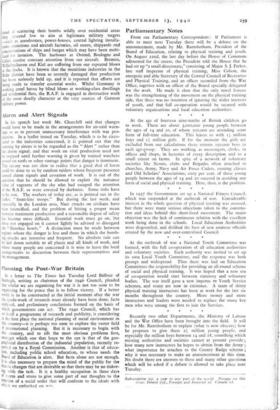Planning the Post-War Britain
In a letter to The Times last Tuesday Lord Balfour of Burleigh, writing as chairman of the 1940 Council, pleaded that whilst we are organising for war it is not too soon to be organising for the peace that is to follow victory. If a better world is to be constructed at the initial moment after the war the spade-work of research must already have been done, facts analysed, and preliminary conclusions formed on the basis of which governments can act. The 1940 Council, which has j set itself a programme of research and publicity, is considering inthe first place the national planning of social environment in this country—it is perhaps too soon to explore the vaster field of international planning. But it is necessary to begin with this country, and to sift the most obvious problems first, amongst which one that leaps to the eye is that of the geo- graPhical distribution of the industrial population, recently re- Ported on by a Royal Commission. Another is that of educa- tion, including public school education, to whose needs the Board of Education is alert. But facts alone are not enough. It is also necessary to prepare the mind of the public for the drastic changes that are desirable so that there may be no tinker- tag with the task. It is a healthy occupation in these days cif storm and stress to give some part of our thoughts' to the citation of a social order that will conform to the ideals with which we embarked on war.


























 Previous page
Previous page